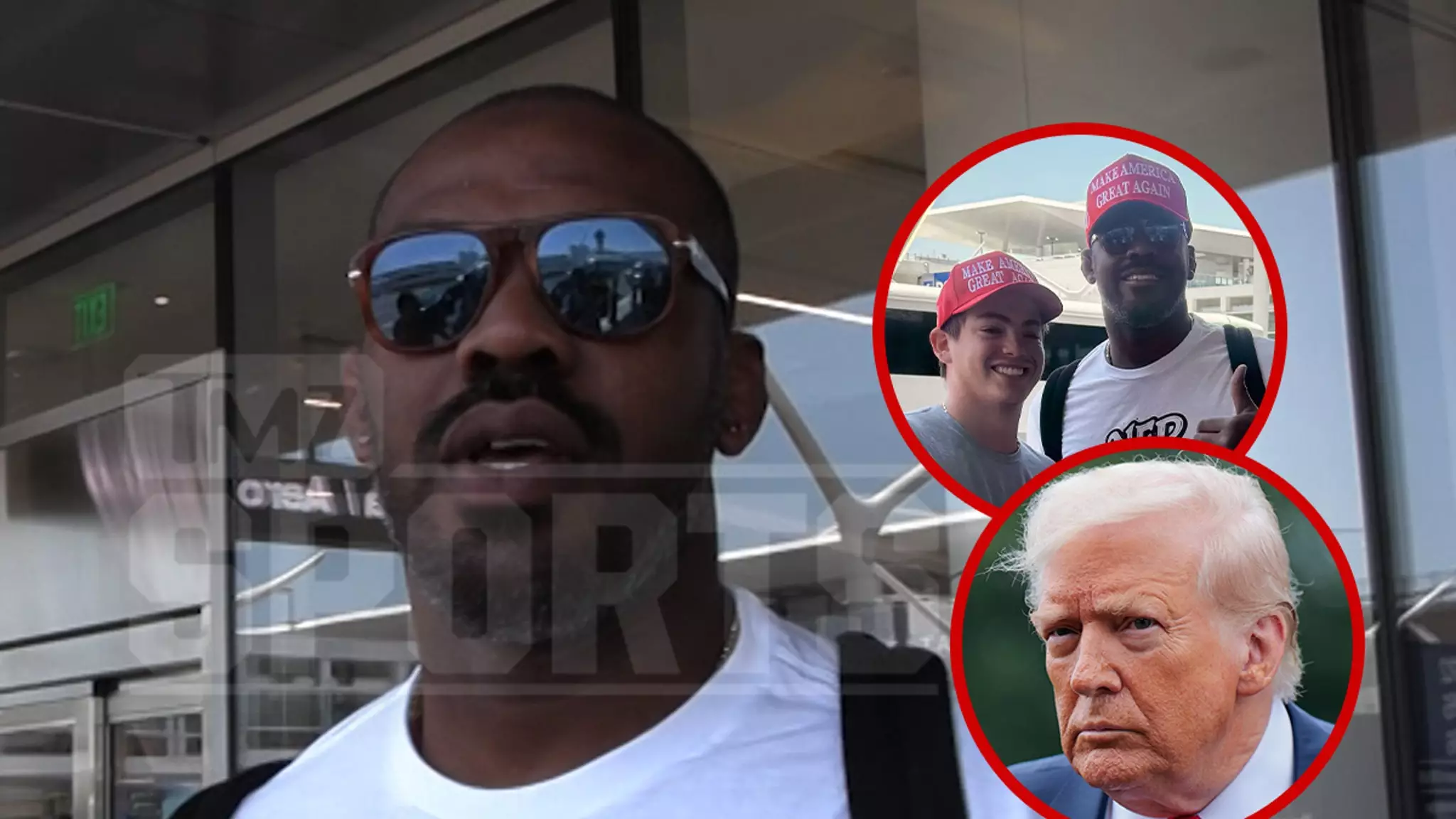Jon Jones, widely regarded as one of the greatest fighters in mixed martial arts history, has recently stirred excitement by confidently asserting his involvement in the upcoming White House UFC spectacle. Despite the lack of an official date, Jones’s firm belief in his participation highlights his desire to make history. His declaration to TMZ Sports underscores his commitment to being part of this unprecedented event, which could serve as a pivotal moment not only in his career but also in the evolution of the sport. The significance of fighting at a venue as symbolic as the White House amplifies the event’s importance, positioning it as a cultural milestone as much as a sporting one.
Political Reverberations and Personal Convictions
Jones’s political admiration for Donald Trump adds an intriguing layer to the event’s narrative. His exchange of an autograph for a MAGA hat at the airport reflects a personal connection or admiration that he openly shares, blurring the lines between sport, politics, and personal belief. This intersection raises questions about the influence of personal convictions on athletes’ career choices and public appearances. While some may view his involvement as a celebration of free speech or a cultural statement, others might see it as an endorsement of contentious political symbolism. Regardless of perspective, Jones’s unwavering confidence signals that this event is about more than just fights—it symbolizes a moment of cultural reach and political engagement in mainstream sports.
Uncertainties and the Future of MMA in Political Arenas
Although Jones’s outlook is optimistic, the event’s logistical details remain vague. The absence of a definitive date or formal announcement leaves fans and critics questioning the event’s feasibility. Dana White’s mention of a forthcoming meeting with Trump to organize the event reveals a tentative planning process, yet the target date of July 4, 2026, suggests this could become a lasting symbol of national unity or political spectacle depending on how it unfolds. This uncertainty underscores the larger debate within MMA: should fighters and promoters leverage political venues and figures to elevate their sport, or does this risk politicizing what is often seen as a purely competitive arena? Jones’s comments reflect a desire to be part of something historic, perhaps viewing this as a once-in-a-lifetime opportunity.
The Broader Impact on Fighters and Fans
Jones’s enthusiasm, backed by colleagues like Khalil Rountree who expressed interest in the outdoor spectacle, indicates a growing appetite within the MMA community for high-profile, unconventional fights. However, this trend raises questions about fighter safety, event logistics, and the long-term implications of mixing politics and sports entertainment. The potential for massive viewership and media attention could elevate UFC’s global presence, yet it also opens doors to controversy and division among fans. Whether this event will be a celebration of sport or a political battleground remains to be seen, but Jones’s confidence signifies a pivotal moment where fighters may begin to see opportunities beyond traditional arenas—spotlights that tie their careers directly into broader national conversations.

Leave a Reply